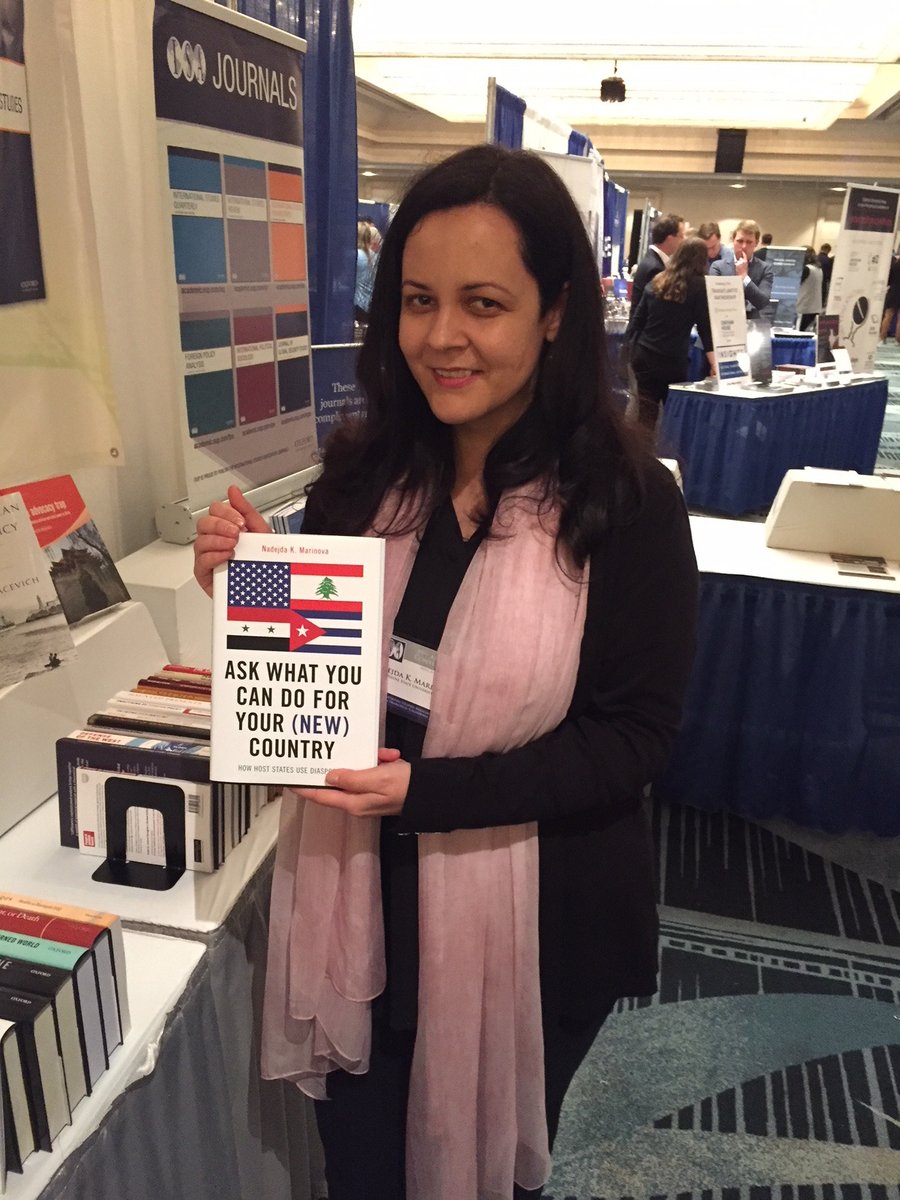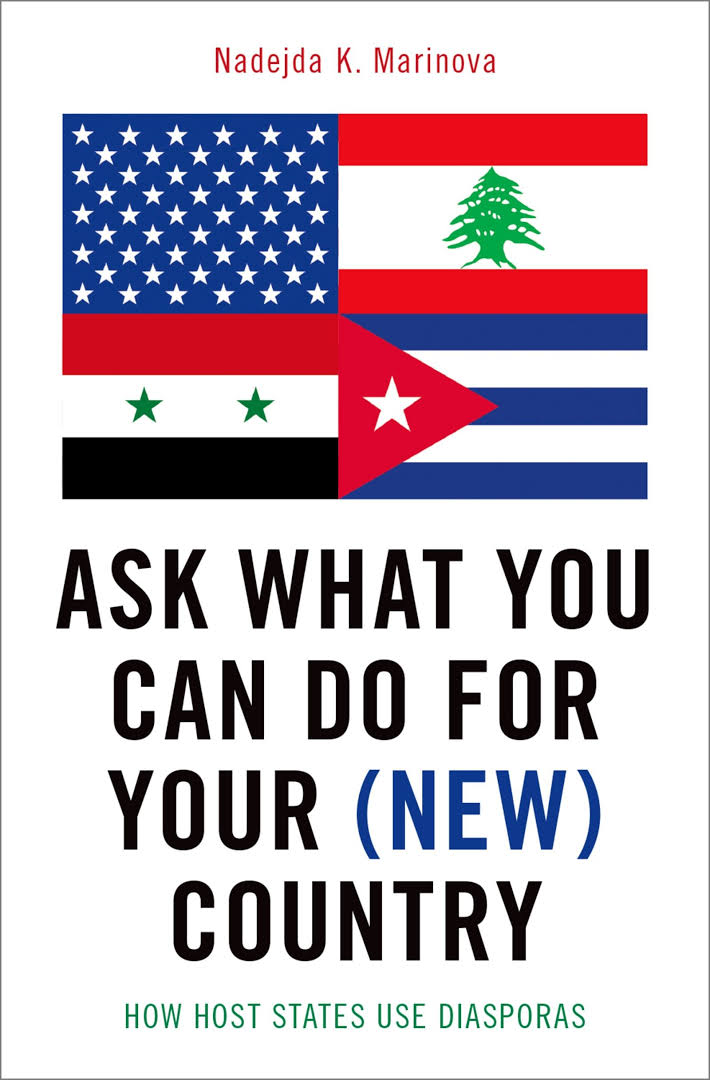Professor Nadejda Marinova publishes new book on transnationalism and foreign policy
Assistant Professor Nadejda Marinova has produced a new work that is attracting attention in the field of Comparative Politics. The book, Ask What You Can Do for Your (New) Country: How Host States Use Diasporas, was published by Oxford University Press in the summer of 2017.

Within the last few decades, a body of theory and empirical analysis has emerged within international relations on the connections between transnationalism and foreign policy. One aspect of this literature has involved the strategic relationship between home states and their ethnic lobbies abroad. Professor Marinova's book develops a theory about when, how, and why states use diasporas and the ethnic lobbies they generate to advance foreign policy goals.
As was demonstrated before the 2003 invasion of Iraq, when Iraqi exiles testified that Saddam Hussein possessed weapons of mass destruction, ethnic lobbies have been used strategically by the United States (and other countries) to advance political objectives. States have even promoted the creation of such ethnic lobbies for this purpose.
As Dr. Marinova clearly outlines in her work, participants in ethnic lobbies are a specific subset of émigrés who are politically involved, hold particular views on homeland politics and have connections to political institutions within the host state.
These groups then serve as a conduit between the mass public and government representatives, as well as other less politically inclined members of the diaspora via a coordinated effort by the host state.
 Professor Marinova presents a theory explaining the conditions under which a host state will decide to promote and use an ethnic lobby, and she tests it comparatively with eight cases, including: the Bush Administration's use of the American Lebanese Cultural Union and the World Council for the Cedars Revolution in developing policy towards Lebanon and Syria; the Iraqi National Congress in endorsing the US invasion of Iraq; the Cuban-American Committee's cooperation with the Carter administration in attempting to normalize relations with Cuba; and the International Diaspora Engagement Alliance (IdEA) launched by Secretary of State Hillary Clinton in 2011 to promote economic development in a number of countries.
Professor Marinova presents a theory explaining the conditions under which a host state will decide to promote and use an ethnic lobby, and she tests it comparatively with eight cases, including: the Bush Administration's use of the American Lebanese Cultural Union and the World Council for the Cedars Revolution in developing policy towards Lebanon and Syria; the Iraqi National Congress in endorsing the US invasion of Iraq; the Cuban-American Committee's cooperation with the Carter administration in attempting to normalize relations with Cuba; and the International Diaspora Engagement Alliance (IdEA) launched by Secretary of State Hillary Clinton in 2011 to promote economic development in a number of countries.